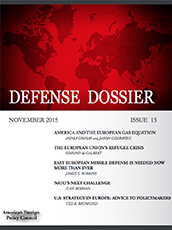
Europe’s strategic dilemmas
America And The European Gas Equation
The European Union's Refugee Crisis
East European Missile Defense Is Needed Now More Than Ever
Nato's Next Challenge
U.S. Strategy In Europe: Advice To Policymakers

America And The European Gas Equation
The European Union's Refugee Crisis
East European Missile Defense Is Needed Now More Than Ever
Nato's Next Challenge
U.S. Strategy In Europe: Advice To Policymakers
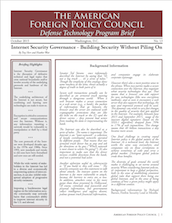
Internet Security Governance covers the policy challenges that arise from building and governing security in the Internet’s architecture and key protocols. It is not a description of security for computers and networks (Information Assurance), how to manage the negotiated structure and key functions of the Internet (Internet Governance), or the pursuit of criminal groups and other threat actors (Cyber Crime). Internet Security Governance is the discussion of defensively oriented technical and legal topics that cross national boundaries and/or involve security of the underlying protocols and hardware which make up the Internet...
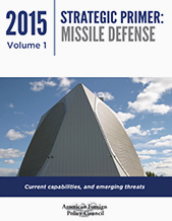
The goal of the new Strategic Primer initiative is to provide a concise, comprehensive overview of specific defense technology issues presented in a clear, direct, and graphical manner that serves as an accessible reference to policymakers. Volume 1 of the series focuses on Missile Defense.
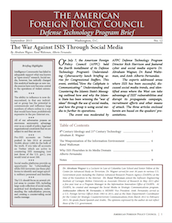
On July 7, the American Foreign Policy Council (AFPC) held the fourth installment of its Defense Technology Program’s Understanding Cybersecurity lunch briefing series for Congressional Staffers. This event, entitled, “How the Caliphate is Communicating:” Understanding and Countering the Islamic State’s Messaging outlined how and why the Islamic State has been winning the “war of ideas” through the use of social media, and how the group is using social media to further its operations...
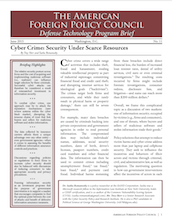
Cyber crime covers a wide range of activities that includes theft, fraud and harassment; stealing valuable intellectual property as part of industrial espionage; committing financial fraud and credit card theft; and disrupting internet services for ideological goals (“hacktivism”). The crimes target both firms and consumers, and while they rarely result in physical harm or property damage, there can still be severe consequences...